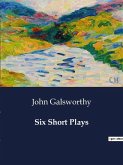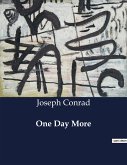"Dolly Reforming Herself" by Henry Arthur Jones is a Victorian-era play that explores themes of women's rights, social reform, and the complexities of personal transformation. The titular character, Dolly, is a young woman who becomes disillusioned with the restrictions placed upon her by society and decides to take matters into her own hands to reform her life. As the play unfolds, Dolly embarks on a journey of self-discovery and empowerment, challenging traditional gender roles and societal expectations along the way. Through her actions and interactions with other characters, including her family and romantic interests, Dolly confronts issues of identity, independence, and the pursuit of happiness. Jones uses Dolly's story to address broader social issues of the time, including the role of women in society, the need for social reform, and the tensions between tradition and progress. Through his portrayal of Dolly's struggles and triumphs, Jones offers a nuanced exploration of the complexities of personal growth and societal change.
Hinweis: Dieser Artikel kann nur an eine deutsche Lieferadresse ausgeliefert werden.
Hinweis: Dieser Artikel kann nur an eine deutsche Lieferadresse ausgeliefert werden.








